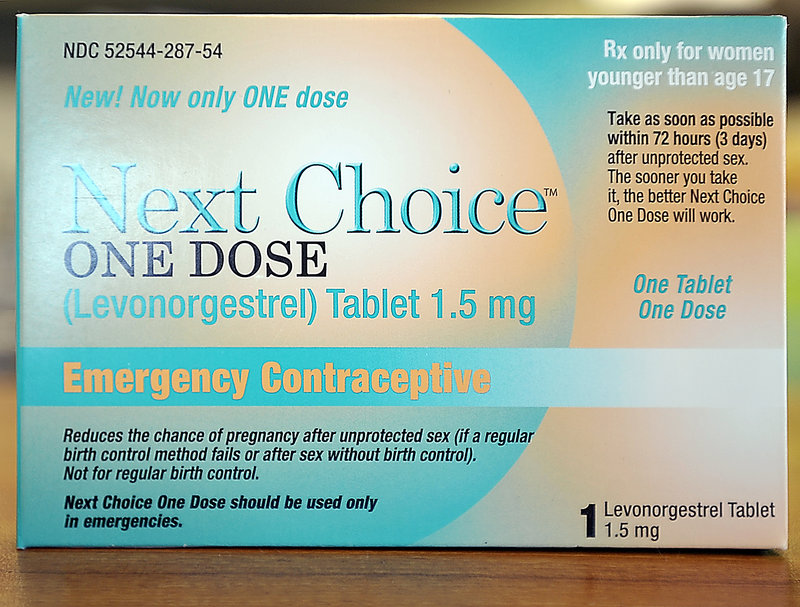By this time next month, the morning-after pill — which can help prevent pregnancy when taken after sexual intercourse — could be out from behind pharmacy counters and on the shelves of drugstores nationwide.
The morning-after pill’s over-the-counter availability hinges on whether the Obama administration meets a 30-day deadline to appeal a recent federal court ruling allowing emergency contraception to be sold over the counter to girls ages 16 and younger.
The administration should allow the April 5 ruling to stand. The decision broadening access to emergency contraception could reduce unintended pregnancies among consumers of all ages.
Moreover, it draws on science — unlike speculation about whether the morning-after pill is safe and how it works.
Federal law requires pharmacies to keep the morning-after pill behind the counter, making it tough for women to buy it when they need it, even if they’re of age to buy it without a prescription.
Emergency contraception is up to 89 percent effective when taken within the first 72 hours after unprotected intercourse. But although they don’t have to have a prescription to purchase the morning-after pill, women 17 and older can’t just grab it off the shelf and take it to the cash register.
They have to show government-issued proof of their age before a pharmacy worker can bring the medication out from behind the counter — making access to the drug impossible when the pharmacy gate is closed.
One reason that access to the morning-after pill has become so controversial is the belief of some abortion critics that it terminates a pregnancy. But according to widespread scientific consensus, the active ingredient in Plan B, by far the most common brand of emergency contraception, prevents pregnancy — it doesn’t end it.
Furthermore, many medical groups, including the American Medical Association, the World Health Organization and the American Academy of Pediatrics, have affirmed the safety of emergency contraception. (The judge who wrote the recent ruling pointed out there’s no age requirement to buy over-the-counter cough medication, which can cause hypertension, toxic psychosis and coma when abused.)
Plan B does not cause birth defects if a pregnant woman takes it. In fact, the WHO says, even women who are advised not to take regular contraceptive pills — like those with a history of migraine or severe liver disease — may safely use emergency contraception.
Of course, sexuality is an emotionally charged topic, and we would like this to be a world where all families openly discuss puberty and sex and no teenage girl has to decide on her own what to do after having had risky intercourse.
But it would be callous to force a girl in less supportive circumstances to either bear an unwanted child or undergo an abortion when there’s a safe, effective way to prevent that.
“You’d hope your child would come and talk to you about that, but that’s not everyone’s situation,” a Portland parent told the Press Herald after the recent ruling. “There are two sides to everything.” We hope that the Obama administration sees it that way, too.
Send questions/comments to the editors.



Success. Please wait for the page to reload. If the page does not reload within 5 seconds, please refresh the page.
Enter your email and password to access comments.
Hi, to comment on stories you must . This profile is in addition to your subscription and website login.
Already have a commenting profile? .
Invalid username/password.
Please check your email to confirm and complete your registration.
Only subscribers are eligible to post comments. Please subscribe or login first for digital access. Here’s why.
Use the form below to reset your password. When you've submitted your account email, we will send an email with a reset code.